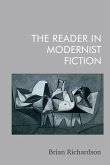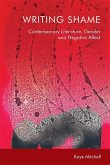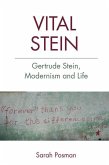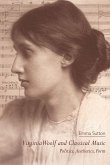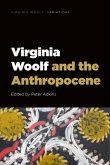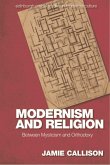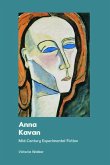'This is a beautifully controlled study of literary hands as they write, point, stroke, trace and tease. At the same time it is an expansive, audacious and supremely well-handled study of what it means to touch and be touched, to feel and be felt. Haptic Modernism establishes Abbie Garrington as one of the most compelling voices in the rapidly-evolving critical conversation about literature and "the business of the bodily".' Alexandra Harris, University of Liverpool 'Touch is the most neglected sense in literary studies. In this remarkable book, Abbie Garrington makes good that neglect and opens up a whole new field of research. Haptic Modernism offers original interpretations of Joyce, Woolf, Richardson, and Lawrence and introduces us to a radical understanding of bodily responses to the technologies of modernity.' Scott McCracken, Keele University 'Garrington's love of rhyming chiming words, alliteration, and her frequent and fruitful recourse to etymological links gives a joyfulness to this book.' Pilgrimages: A Journal of Dorothy Richardson Studies The first substantial account of the representation of the haptic in literature of the modernist period Haptic Modernism focuses on areas of sensory experience which were being re-conceptualised in response to technological and scientific innovations in the modernist years: touch, kinaesthesis, proprioception and the vestibular sense. The work of James Joyce, Virginia Woolf, Rebecca West, Dorothy Richardson and D. H. Lawrence is considered in detail alongside non-canonical fictions and scientific, philosophical and journalistic accounts of bodily experiences in the realm of touch and the tactile. In a series of extended readings of significant novels, the book weaves together studies of the X-ray, atomic structure, the cinema spectator experience, the look-which-touches of the sculpture viewer, the touch-which-looks of the blind, the process of manicure, literary treatments of the writing hand, muscular responses to motorcar travel and frightening tales of split skins, split selves and severed hands. Haptic Modernism asks why it is that modernist texts are taken with the haptic experiences of the human body. And it seeks to identify clusters of haptic happenings within modernist texts as a means of understanding the touch-transforming social and historical contexts out of which those writings emerge. Abbie Garrington is Lecturer in Nineteenth and Twentieth Century Literature at the University of Newcastle.
Hinweis: Dieser Artikel kann nur an eine deutsche Lieferadresse ausgeliefert werden.
Hinweis: Dieser Artikel kann nur an eine deutsche Lieferadresse ausgeliefert werden.


